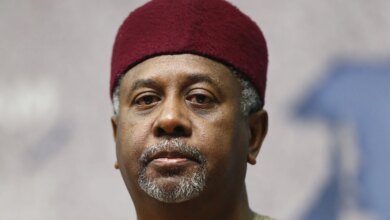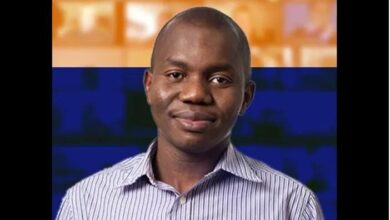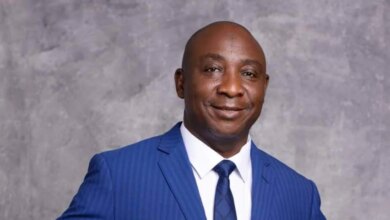Re-Weaponisation of Law Enforcement Powers Against Opponents: A Search for Sovereign Self
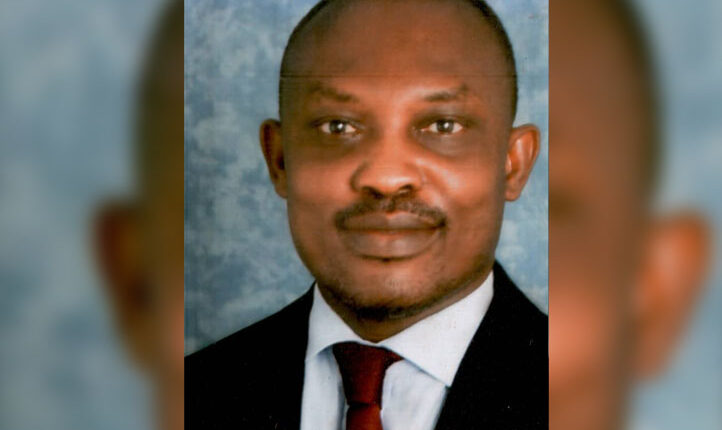
Introduction
But for the call on all Ghanaian citizens to make their voices heard, and not to sit on the fence, and the quotation of the supreme law of Ghana enjoining every citizen to fight against all forms of abuse including corruption, to prevent direct and indirect looting or condonation of the looting of the public purse, I would have ignored the epistle as I deemed it to be destructive, full of wild conjectures and concocted allegations against people who are making some attempts to attain “righteous judgment” and, importantly, the retrieval of an alleged loot of over $23 billion, in fulfilment of the wish of the teeming people of Ghana.
I noticed the penchant for the use of the words and phrases—“commonsense, right-thinking, every rational being and every reasonable…” I, however, found such attributes to be epistemically defective when I got to the conclusion of the said epistle. More so, as I have not heard the respected writer expressing similar disgust with vigour about real injustices against a section of the Ghanaian population.
I wondered how such a highly respected member of our society could rely on those phrases to make the arguments he forcefully tried to push through his newfound plutocrats whom the epistle described as “targeted vulnerable citizens suffering from poverty and want.”
The writer’s fume was about “perceived conflict of interest”/procedural injustice and/or due process infractions. My reading kept me asking whether it was the same “Citizen Vigilante,” a protégé within the AFRC/NDC framework, who was part and parcel of all the institution’s formal programme and a cadre of the revolution. The person who defied the court to light the perpetual flame of probity, accountability, justice, etc. I was not sure either if it was the same person who recently critiqued a judgment where the judge thought there were classes of people in society for which different laws ought to be applied. Well, the said judge appears to be bold, straightforward and consistent. Though he is not the only person harbouring thoughts of differential and preferential treatment for cronies, it is just that he states his convictions unambiguously.
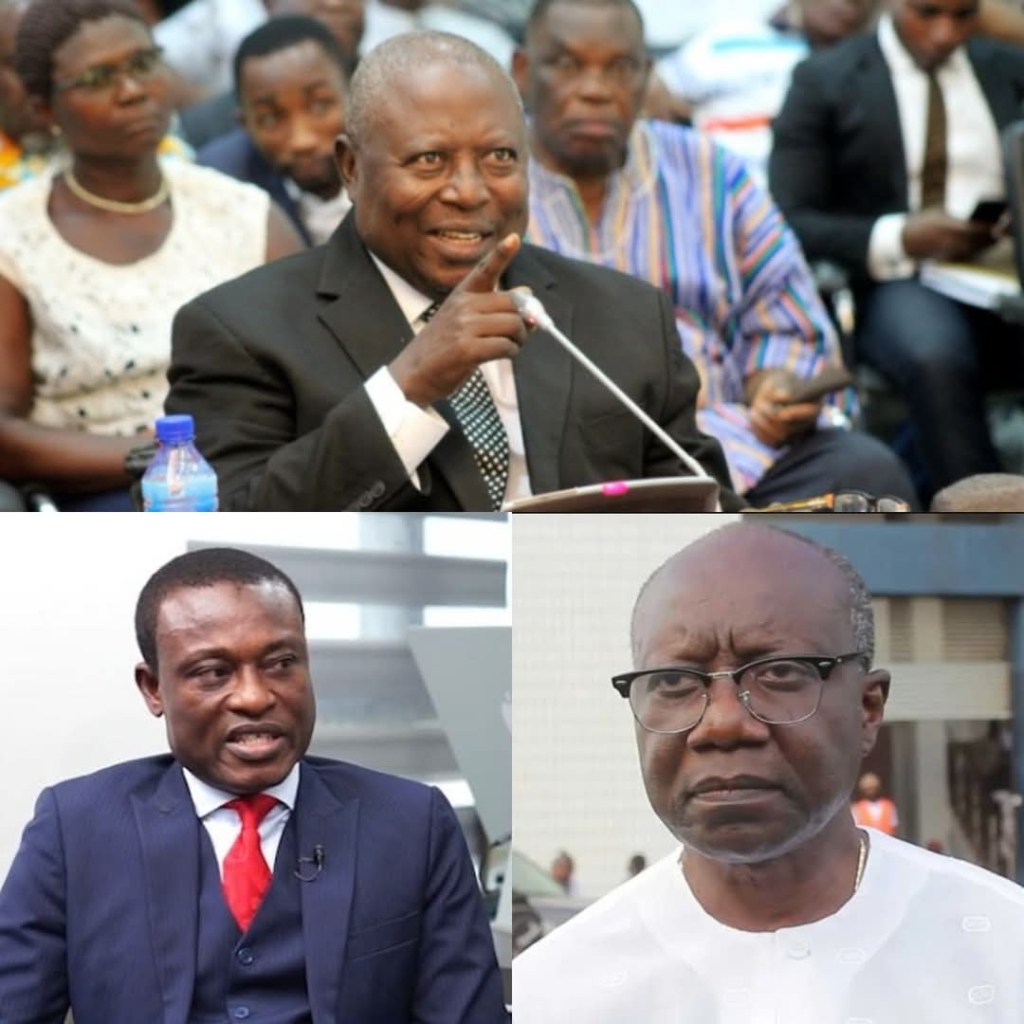
The Balancing Test
To the extent that due process requires even-handedness and abhors arbitrariness, abuse of power, authority and office in any endeavour, I heed the call not to sit on the fence. I ask that all power-wielding officials be true to the Constitution and other laws of the land and be fair to all manner of people irrespective of their standing in society or any form of characterisation.
That said, it is trite knowledge that investigations of “facts” may not always be epistemically neutral. Again, evidence obtained out of such processes is not necessarily epistemically undesirable, nor does due process require de novo review of factual conclusions by state investigators or prosecutory agencies.
Are we to believe that the EOCO mandate has shifted to investigating only members of the previous government and its affiliates? Even then, is it the case that every single member of the previous administration is being subjected to the alleged ordeal we are made to believe? Is it being said that the said donations of photocopies would be used to facilitate the services of only “political enemies”? I am sure the investigative agencies’ “rule of conduct” cuts across and as such cannot be said to be discriminatory.
Throughout the world, governmental due processes have always been known to be dependent upon the nature of the interest at play; the nature of due process applied has been determined by the weight of specific interests involved and the ability to strike a good balance against the opposing interests.
In other words, the private interest that is affected by any given official action; the risk of erroneous deprivation of such interests vis-à-vis the procedures used, and the probable value for the collective good ought to be taken into consideration.
The point I seek to make is that personal bias or prejudices of investigators per se are not sufficient basis for the cacophony. In any case, the perceived fear of persecution can be countered by the court processes.
Cure for the Seeming Risks in the Investigatory Processes
The basic elements of due process ensure substantial minimisation of unfair and/or mistaken deprivation of a person’s right to life, property or liberty. These rights can adequately be safeguarded when the aggrieved is provided with an avenue to contest the basis upon which they are being deprived of their interests.
Fortunately, our court processes give room for notices and a hearing before an impartial court. I am hoping that we get to a stage as a nation where the presumption of honesty and integrity of the court will not be in doubt. I do not think the accused have to be afraid, given the fact that there would be an opportunity for confrontation of the prosecutor’s evidence and cross-examination of contestable allegations, much the same as there would be room for discovery. I do not think that decisions could be reached without the records. More importantly, the accused would exercise a right to be represented by counsel of their choice.
As stated, basic guarantees of a fair trial are assured by the prevailing laws of Ghana and beyond: the right to counsel, the right to speedy and public trial, the right to be heard, the right to be free from the use of unlawful evidence and any confession wrongfully obtained. It is known that “Due process of law requires that the proceedings shall be fair, but it is also known that fairness is relative, not an absolute concept… What could be fair in one set of circumstances may be an act of tyranny in others.”
Complete Breach of Faith and Violation of the People’s Trust
“Phenomenologically,” the author of the epistle’s recent stance or line of arguments points to a major breakdown of the very noetic-nematic correlations of the noble ideals he had been known for. Everyone is entitled to change their mind, but the dynamic structure of their recent thinking unleashes their unfaithfulness to the principles of probity, accountability and whatever.
His very ideational identity is giving way to perfidiousness. He is now an apostate who has gradually abandoned worthwhile principles. He is now a sellout when it comes to solidarising with the vulnerable, the masses, the ordinary man and the poor.
He appears to be consistently advocating for a strong, proactive defence of fundamental freedoms. And so, he could boast of having called the President, ostensibly, to interfere with ongoing investigations of economic crimes. Surprisingly, he did not see his act as influence-peddling or obstruction of justice, and unlike him, I will stop short of spurious allegations but ask a simple question as to whether Mr Martin A.B.K. Amidu has any personal interests in his selective pursuits.
Astonishing as it may seem, however, the eminent attorney accuses others of cronyism, non-adherence to due process, procedural injustice and perceived conflict of interest, but he conveniently ignores—or wants us to believe that he did not hear or read about—a 22-year-old woman who was sentenced to six months in prison for a crime amounting to 1,300 cedis. Of course, that “poor” nursing mother cannot be his friend to merit his advocacy.
I wondered if Mr Amidu wanted the ordinary man on the street to believe that he is being faithful to what he has been known for all these years. Moreover, would he say his new fidelity is vital to truth and justice? He does not care to seek justice for the teeming youth who now face gun-wielding security men because they desire to work and survive. Certainly, the Citizen Vigilante belongs to a different class now. He has forgotten about the ordinary man on the street. He is bent on standing in the way of accountability. He is trying very hard to shield his newfound friends as he closes his eyes to the injustices the alleged loot, pillage and squander have caused the masses—depriving them of needed jobs and turning them into wild “whatever,” fiercely and fearlessly engaging in open battle with our security forces.
If Only We Could Hear the People We Lead Speak
The recent stampede, which claimed six precious young souls who were among over sixty thousand other unemployed people who had gone to look for non-existent jobs. The youth, who apart from destroying our environment, are picking sticks, clubs, cudgels and bludgeons to face sophisticated firearm-wielding security officers, and the activities of mendicants, invariably constitute speech. The question, however, is: who is listening?
The speech of these near-destitutes is asking our leaders, the elite and people of conscience to do something about their plight. The purpose of their actions and their medium of communication constitute disparate abstractions which are very difficult to notice with the ordinary eye, yet they carry specific information about their situations, but the particularity of their message continues to be lost on our cherished leaders. It is therefore not surprising that solutions elude us.
Anyone who finds themselves in a mendicant condition is often faced with a far more urgent purpose: to provide for their immediate sustenance. Significantly, the most primary form of human speech, which is equally vital to all ages, classes, races and creeds, is usually manifest in “personal” speech. Often, these are declarative statements and queries that proceed from the internal conditions agitating the minds of such individuals or the suffering they face daily—hunger, thirst, aspirations, hope, despair, just to name the most common ones.
If we are ever going to live up to our nation’s ideals of equal justice for all, the entire system—more importantly, the legal system—needs to be reformed to cater for the less privileged and the real vulnerable in our society.
Since the former SP seems to be a champion of fundamental freedoms and rights, I have been wondering if he did not hear the injustices meted out to the Speaker and the President when they were in opposition. I did not read any epistle about those and other injustices. Yet, it was common knowledge that the Akufo-Addo administration denied them their benefits and entitlements in clear violation of administrative law principles and even breached their constitutional rights. All of this required fairness, reasonableness and due process if there was going to be any decision to vary or deny them their benefits or entitlements. Withdrawal of such entitlements in an arbitrary, capricious or unfair manner—i.e., without due process—was an aberration of the Constitution.
Regrettably, renegades can now adequately see the impermissible risk of persecution when nation-wreckers are called to accountability. So many of our folks continue to behave as ostriches, and that’s very troubling.
If two related issues are in conflict, and you adjust your values and thinking to agree with one as incorrect or inappropriate but appear to be glorifying acts of gargantuan economic recklessness, derailment of the economy—including the mismanagement of the financial sector crisis where over 21 billion cedis was thrown out to either collapse or consolidate ten banks, not to talk about job losses—only to now come shouting persecution over $23 billion alleged loot, all in the name of unfathomable allegations of lack of due process, then, paradoxically, you are in effect making your argument trivial.
Conclusion
A life guided by contradictions shows nothing but a striking blind spot. All these controversies in an inclusive society such as ours should be viewed positively as stabilising elements because they show that there are multiple interests and points of view in the public sphere.
My conclusion is essentially reminiscent of Friedrich Nietzsche’s dictum from the 19th century, which demands that we get rid of all role models and think for ourselves as citizens to finally become independent and mature according to our own discretion. Not giving this thought priority will cement the belief that it is laziness and inertia that keep people in their own immaturity, and many times, in blind obedience.
~ Henry Adjei Boadi, the writer, is a corporate generalist and researcher
DISCLAIMER: The Views, Comments, Opinions, Contributions and Statements made by Readers and Contributors on this platform do not necessarily represent the views or policy of Multimedia Group Limited.
DISCLAIMER: The Views, Comments, Opinions, Contributions and Statements made by Readers and Contributors on this platform do not necessarily represent the views or policy of Multimedia Group Limited.
Source link

